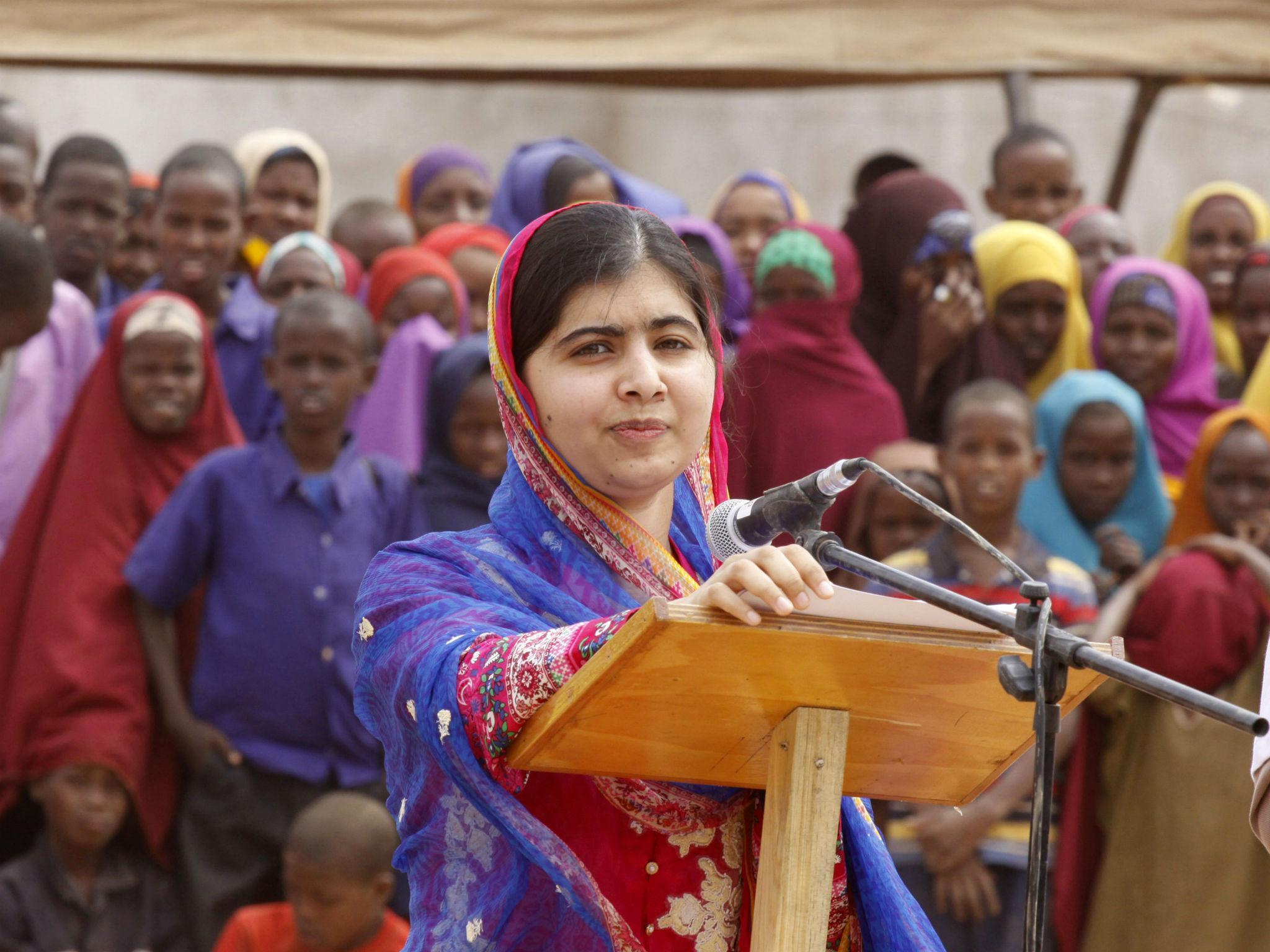Malala Yousafzai demands world leaders to guarantee schooling for all refugee children
'You give education to the children of these families and you guide them and you make their future,' says the Nobel Peace Prize laureate

Your support helps us to tell the story
From reproductive rights to climate change to Big Tech, The Independent is on the ground when the story is developing. Whether it's investigating the financials of Elon Musk's pro-Trump PAC or producing our latest documentary, 'The A Word', which shines a light on the American women fighting for reproductive rights, we know how important it is to parse out the facts from the messaging.
At such a critical moment in US history, we need reporters on the ground. Your donation allows us to keep sending journalists to speak to both sides of the story.
The Independent is trusted by Americans across the entire political spectrum. And unlike many other quality news outlets, we choose not to lock Americans out of our reporting and analysis with paywalls. We believe quality journalism should be available to everyone, paid for by those who can afford it.
Your support makes all the difference.Nobel Peace Prize laureate Malala Yousafzai has urged world leaders to guarantee all refugee children access to a full 12-year education.
She said the move is necessary to avoid a lost generation as the planet struggles with the largest number of displaced people since the Second World War.
The question of how to deal with over 21 million refugees tops the agenda at this month's 71st Session of the UN General Assembly.
And Malala said that because more children than ever are spending their school years as refugees, education is crucial.
“It's not just giving attendance, a bit of food that will protect these families in the future, it is also education. You give education to the children of these families and you guide them and you make their future,” she told The Associated Press from her home in Birmingham.
Malala, now 19, became the youngest Nobel Prize laureate in 2014 when she was recognised for her advocacy of the right of all children to education.
She went to Britain for medical treatment after she was severely wounded in a Taliban assassination attempt in north-western Pakistan where she and her father had defied the Islamic militants by promoting education for girls.
Malala will miss this year's General Assembly because she is focusing on her education, taking exams and applying for college, but she is sending a report from the Malala Fund, which she founded with her father.
It sets out the size of the problem and proposes a new framework enshrining the right to a secondary education much as the 1951 Refugee Convention guaranteed all children a right to a primary school education.
“We're not calling for secondary to the detriment of primary, we're calling for both. I think that one of the main things that has happened since the '51 Convention came into being is that the refugee situation has got much more protracted,” said Philippa Lei, one of the report's authors.
In 2015, there were 11 million refugees under the age of 18, accounting for 51% of the refugee population and up from 41% in 2009.
Meanwhile, the average amount of time a refugee spends in exile is now nearly 20 years - more than double what it was in the 1980s - which has led to a situation where almost 80% of the adolescent refugees are out of school, according to the report.
Malala said the situation is especially precarious for young women refugees who are less likely to receive secondary schooling than their male counterparts.
“I'm in the last year of secondary school and when I imagine children who drop out after primary school and when I imagine girls who get married as teenagers when they should be in school, it worries me,” she said.
“Because when they drop out from that level they're not even able to go further in their lives and go to university and achieve their dreams.”
Education for refugee children, regardless of the level of schooling, remains woefully underfunded because refugee crises are generally still perceived as temporary arrangements.
To remedy the situation, Malala is calling on the international community to provide 2.9 billion dollars (£2.18 billion) by 2019 to the Education Cannot Wait Fund to support more than 25 million of the world's most vulnerable children including refugees.
“Education is crucial. I understand that, you understand that, people understand that but when it comes to world leaders' decision making, they completely ignore it, as if they have no knowledge and are completely ignorant,” she said.
“They should understand this because they want their own children to go to universities and get a quality education.”
Join our commenting forum
Join thought-provoking conversations, follow other Independent readers and see their replies
Comments